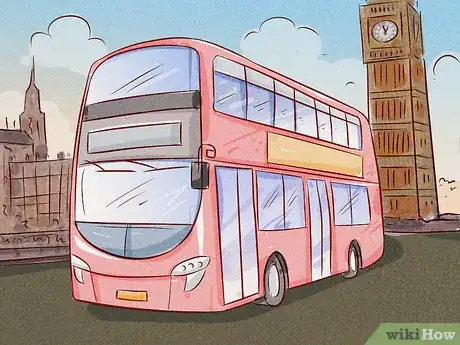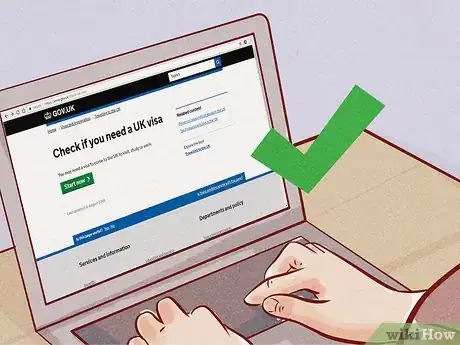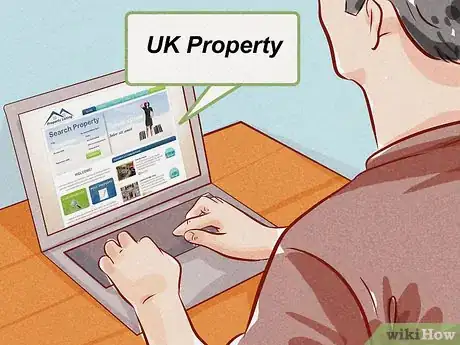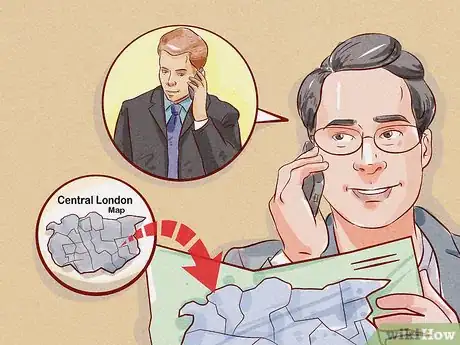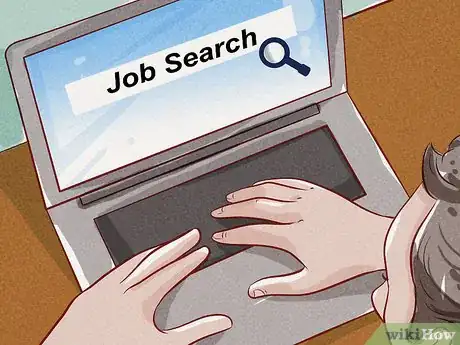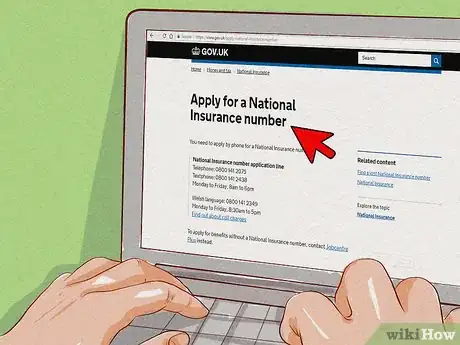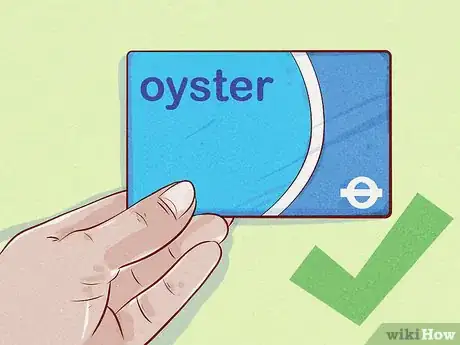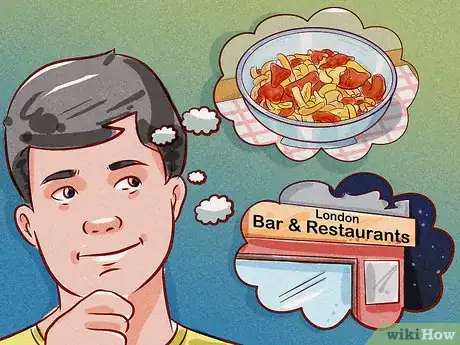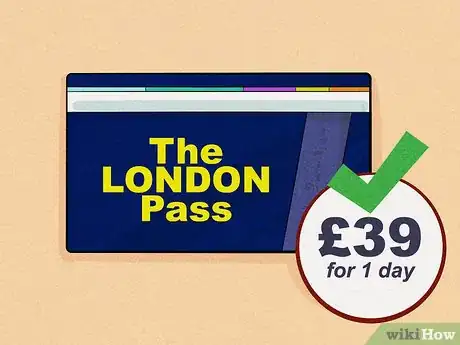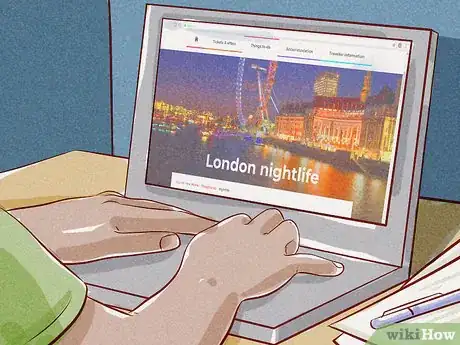This article was co-authored by wikiHow Staff. Our trained team of editors and researchers validate articles for accuracy and comprehensiveness. wikiHow's Content Management Team carefully monitors the work from our editorial staff to ensure that each article is backed by trusted research and meets our high quality standards.
There are 8 references cited in this article, which can be found at the bottom of the page.
This article has been viewed 13,141 times.
Learn more...
London is a bustling city that is home to over 8 million people. Living in this prosperous city that is rich with history and entertainment can be difficult if you are new to the country. Sorting out your visa, housing, and employment are all important things to do before you move. Once you arrive in London, set up a bank account, National Insurance Number, and Oyster card. Then you will be ready to begin exploring your new city and to start feeling at home in London.
Steps
Moving to London
-
1Visit London to scope out the lifestyle and places to live. Travel to London as a tourist to get a feel for the bustling city. Visit North, South, East, and West London to experience each neighbourhood.[1]
- Try to take public transport rather than driving to each area, so that you can experience what different commutes will be like.
- This will help you to decide if living in London is right for you.
-
2Apply for a visa if you are not a UK citizen. Head to the UK Government website (https://www.gov.uk/check-uk-visa) for the most up to date information about the different types of visas for the UK. These depend on your home country, and if you will be studying or working in London. To apply for a visa for the UK, head to the UK Government website (https://www.gov.uk/apply-uk-visa) to begin the application process.[2]
- If you don’t have a UK or EU passport, then it’s likely that you will need to apply for a work visa to be able to work in London.
- If you are a Commonwealth or EU citizen, it shouldn’t be too difficult to enter England to work.
- Obtaining a visa if you are from other areas of the world, such as the US, will be more difficult but it is still possible.
Advertisement -
3Choose a suburb outside Central London for a more affordable option. Rent and property prices typically decrease as you travel outwards from the center. There are many public transport options for commuting around London that extend through most areas.
- Use a search engine to look for property websites for both home renters and buyers in London. You can adjust the price, location, and size filters to narrow down your search.
- Each house listing will have the contact information of the real estate agent for that property. Contact the agent to book in a viewing or to ask any questions that you may have.
- For both renters and home buyers, the suburbs of Chatham, Basildon, and Luton are considered the most affordable, due to having the lowest annual rent and season ticket prices to Central London.[3]
-
4Look in Central London if you want to be close to the city. Central London is generally the most expensive area, but you will probably be very close to your new workplace. Check property listings online, or contact a real estate agent who will help you with your search.
- If you aren’t looking for a house with your family, consider shared accommodation for a more affordable option. Many people in their 20s and 30s live in a flatshare situation in London. This is because affording a rental property on your own in London is very difficult, and you can get a much nicer place if you share with others.[4]
-
5Secure a job before you move if possible. Living in one of the most expensive cities in the world would be incredibly difficult without a job, so start your search as early as possible. Network, use social media, sign up with an employment or recruitment agency, or use various job listing websites to get started on your search.
- If you are wanting to work in a pub or in retail, you should approach the pub or shop in person with your CV.
- If you are already living in London and haven’t found a job yet, look in local papers such as the London Evening Standard. This is a free newspaper which is given out around public transport stations and on main streets in the late afternoon. It features updated job listings and employment agencies that are available for you to contact.
Arriving in London
-
1Open a bank account as soon as you arrive. A bank account is necessary for you to start receiving wages or a salary, and to begin paying bills. Take the original copies of your photographic I.D and proof of address with you to the bank branch of your choosing.
- Your passport can be a form of photographic I.D for opening a bank account.
- For your proof of address, bring along a copy of your new tenancy agreement if you are renting. A letter from your current employer is another option. If you are having trouble with finding proof of your address, talk to the bank teller about your options.
-
2Apply for a National Insurance Number once you arrive. This is used by the UK Government to monitor taxes and national insurance. You can only apply for one once you arrive in the UK, and can start the application process on the UK Government website (https://www.gov.uk/apply-national-insurance-number).
- If you don’t apply for a National Insurance Number, you will have to pay emergency tax.
-
3Get an Oyster card to travel around London. This electronic card holds your public transport ticket, and is the most cost effective way to travel around London. You can get an Oyster card from all Oyster Ticket Stops, which are in newsagents around London, or at all Overground and Underground stations.
- Oyster cards can hold pay as you go credit, passes, and season tickets.
- You can use an Oyster card for buses, the Overground, the Underground, light rail services, and trams just to name a few.
-
4Meet new friends in London. It’s easy to feel lonely when you have just moved to a new city and don’t know anybody. Introducing yourself to your neighbours, joining a sports club or team, accepting a colleague's invitation for drinks, or finding a social group in your area will have you making friends in no time.[5]
- Search with your postcode and a type of sport that you are interested in on either the Totally Sport or Get Active websites.
- Use the Meet Up or City Socializer websites to find other people who also want to make friends in your neighbourhood.
Exploring London
-
1Take a trip to one of London's parks for a dose of nature. London has many spectacular parks on offer, including the well-known Hyde Park, the elegant Regent's Park, and the royal Greenwich Park. There are also many parks that are less curated and more wild, such as Richmond Park with 630 free-roaming deer, or the nature reserves of Lee Valley Regional Park.[6]
- Visiting a park is a perfect sunny day activity, and also is provides a good opportunity for jogging or cycling.
-
2Visit the cinema for low cost entertainment. For people aged 16 - 25, the Barbican cinema offers £5 tickets between Monday and Thursday. Other cinemas such as Cineworld or Vue offer monthly memberships which makes seeing films cheaper if you are a regular cinema goer.
- Check the cinema website before you go, because often booking the tickets online instead of at the counter gives you a discount.
-
3Experience the theatre if you’re a production fan. London is one of the best places in the world to see musicals, Shakespeare, and fringe theatre. The West-End is one of the leading production locations in the world.
- Check online for theatre discounts and dining packages.
-
4Explore a museum for a free daytime activity. Many of London’s museums are completely free, which is a great way to spend a weekend or two if you are trying to save money. The Tate Modern, the Natural History Museum, and the National Gallery are all free.
- Other free museums in London include the British Library, the Victoria and Albert Museum, and the British Museum.
-
5Dine at one of London's many pubs or restaurants. Restaurants and pubs are found all across North, South, East, West, and Central London, giving you more options than what is imaginable. Explore rooftop bars, traditional pubs and quirky restaurants all within your own city.[7]
- There are many different cuisines to explore in London. Try traditional British, Chinese, Turkish, Indian, or Italian foods at one of the many street food trucks, family restaurants, pubs, or cafes.[8]
-
6Go sightseeing with a London Pass. A London Pass offers you unlimited entry to over 80 tourist attractions in London, including the London Zoo, the Tower of London, Windsor Palace, and St Paul's Cathedral. London attractions are usually costly and expensive, but a London Pass will save you more money depending on how many attractions you visit with it.
- A London Pass ranges from 1 - 6 days, either including or excluding travel.
- These range in cost from £39 for 1 day, up to £131 for 6 days with travel.
- You can buy a London Pass online from the official website, at the Heathrow Airport, and from most major Underground and Overground stations.[9]
-
7Explore London nightlife to see the city in a new light. London has many different options for experiencing nightlife in your new city. From burlesque, to cabaret, to casinos, bars, or nightclubs, there is something to everybody.[10]
- Use a search engine to see what's on in your area of London.
- There are usually many different types of bars and comedy nights in most areas if you don't want to travel into the central city.
Warnings
- Ensure that you have the correct visa while you are living in London. There are serious consequences for living in London without the right visa.[11]⧼thumbs_response⧽
References
- ↑ http://randomlylondon.com/moving/
- ↑ http://randomlylondon.com/moving/
- ↑ https://www.bbc.com/news/business-42578164
- ↑ http://randomlylondon.com/moving/
- ↑ http://www.movingtolondon.net/making-friends-in-london-after-moving-here-by-yourself/
- ↑ https://www.visitlondon.com/things-to-do/openspace/best-parks-in-london
- ↑ https://www.visitlondon.com/things-to-do/food-and-drink?ref=nav
- ↑ https://london.eater.com/maps/best-london-restaurants-eater-38
- ↑ https://www.londonpass.com/contact-london-pass/
